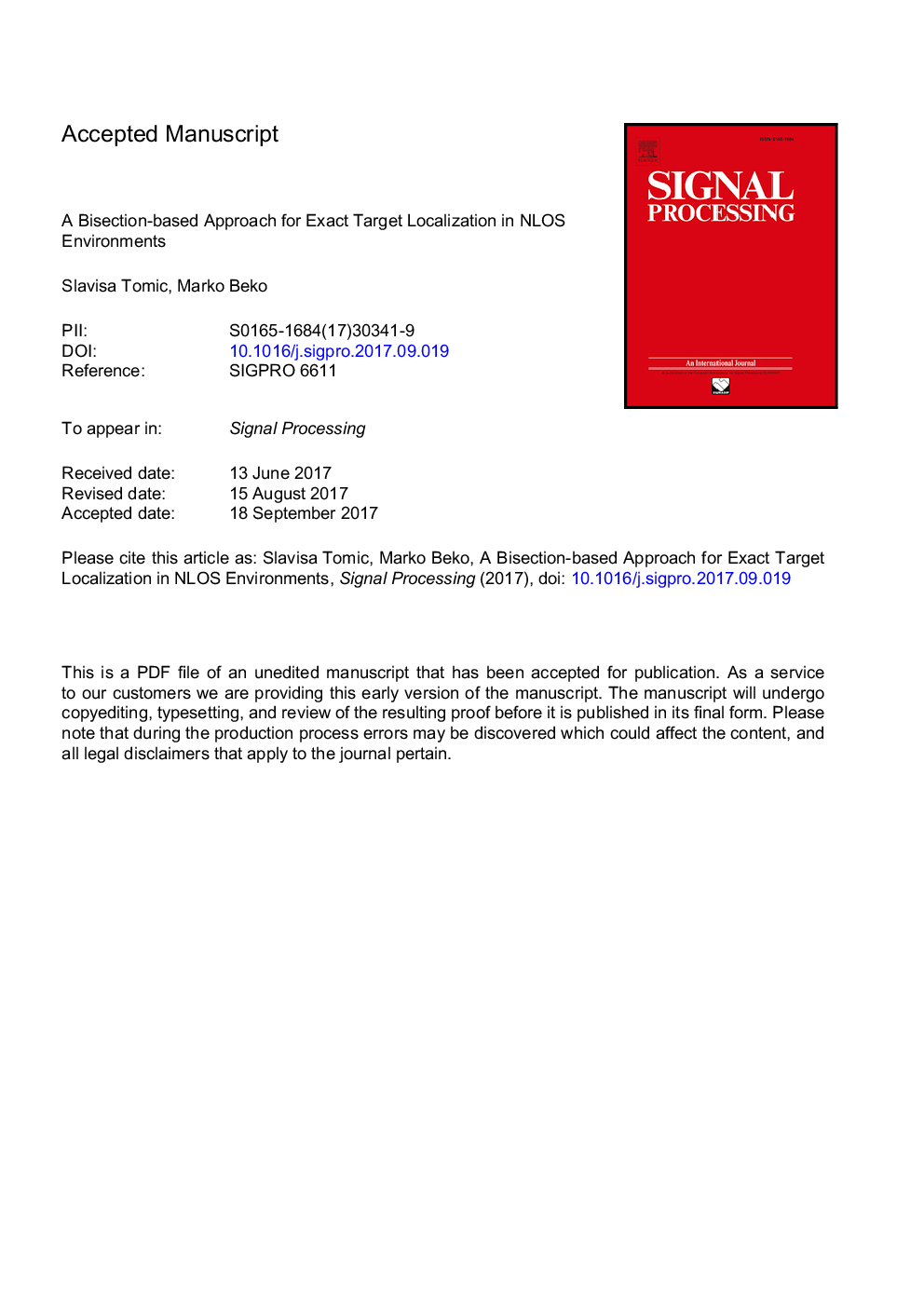| Article ID | Journal | Published Year | Pages | File Type |
|---|---|---|---|---|
| 4977439 | Signal Processing | 2018 | 25 Pages |
Abstract
This work addresses the range-based target localization problem in adverse non-line-of-sight (NLOS) environments. We start by deriving the maximum likelihood (ML) estimator from the measurement model, since it is asymptotically efficient. However, this estimator is highly non-convex and difficult to solve directly. Hence, we convert the localization problem into a generalized trust region sub-problem (GTRS) framework. Although still non-convex in general, the derived estimator is strictly decreasing over a readily obtained interval, and thus, can be solved exactly by a bisection procedure. In huge contrast to existing algorithms, which either require the knowledge about the magnitude of the NLOS bias or to a priori distinguish between line-of-sight (LOS) and NLOS links, the new one does not require such prerequisites. Also, the computational complexity of the proposed algorithm is linear in the number of reference nodes, unlike the majority of existing ones. Our simulation results show that the new algorithm possesses a steady NLOS bias mitigation capacity and that it represents an excellent alternative in the sense of the trade off between accuracy and complexity. To be more specific, it not only matches the performance of existing methods (majority of which significantly more computationally complex) but outperforms them in general. Moreover, the performance of the proposed algorithm is validated through real-indoor experimental data.
Related Topics
Physical Sciences and Engineering
Computer Science
Signal Processing
Authors
Slavisa Tomic, Marko Beko,
